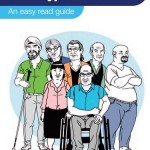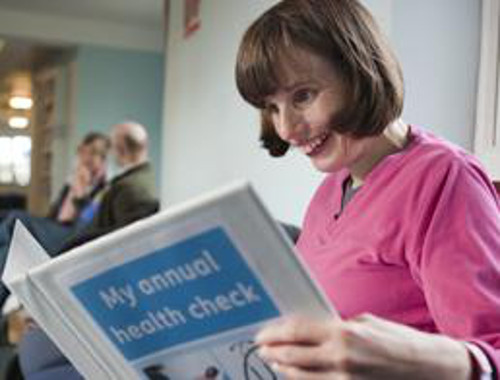
Accurately estimating the prevalence of type 2 diabetes in the population of adults with learning disabilities is difficult, as diabetes can go unrecognised and undiagnosed. When looking at figures on diabetes from GP registers, it may be very difficult to identify people with learning disabilities in those figures as they may not be flagged on GP information systems.
It is reasonable to assume though, that people with learning disabilities may be more at risk of developing type 2 diabetes, given that there are high levels of obesity in this population, which is a key risk factor.
There is little research available on the actual numbers however. Emerson et al in 2012, when looking at health inequalities faced by people with learning disabilities looked at a Dutch study which suggested that whilst 6% of a matched control group had diabetes, this was 11% in the group with learning disabilities. An earlier US study which looked at the health status of ‘working-age adults with cognitive limitations’ and compared this with adults with no disability found those with cognitive limitations had significantly higher prevalence of diabetes than adults with no disability (19.4% vs. 3.8%,)

It is reasonable to assume that people with learning disabilities may be more at risk of developing type 2 diabetes
We have posted previously about the challenges faced by people with learning disabilities and diabetes and approaches to supporting people with the self management of their diabetes, including the use of a “buddy” system to encourage exercise and other personalised plans to ensure bespoke education and support.
A current project called OK Diabetes, run from the Leeds Institute of Health Sciences, has been looking at developing a manualised intervention to aid supported self-management of diabetes and then evaluating the effectiveness of this approach through carrying out a randomised controlled trial (RCT). The manualised approach will include information materials; procedures for determining and recording capacity and obtaining consent
They are currently in phase 2 of the programme, which is looking at a feasibility Randomised Controlled Trial of manualised supported self-management versus treatment as usual.
Normally of course, we would look at the results of the research when published, but part of this process has been for the researchers, with partners from Change UK to produce an updated easy read booklet on what to do if you are diagnosed with type 2 diabetes and we thought it would be helpful to draw attention to this booklet and provide some links to other useful resources.
The booket covers information on
- What diabetes is and the difference between Type 1 and Type 2
- What to expect at the Doctor’s appointment to discuss diabetes
- What hep to expect from a dietitian
- Information on blood sugar levels
- Symptoms of high and low blood sugar levels
- Medications
- Diet and exercise
- Insulin and insulin injections
- The importance of regular meals
- The importance of regular medical check-ups
Tracy Kelly, Head of Care at Diabetes UK, said about the publication of the booklet:
We are pleased that the booklet is current and is tailored for people who have learning disabilities to use as part of their standard diabetes care. We hope it will provide them with the information they need to manage their condition well.”
Dr Amy Russell, OK Diabetes Research Co-ordinator, said:
The people with learning disabilities we interviewed struggled to understand technical language and detailed explanations about things like their pancreas. They wanted a physical booklet they could hold on to that told them what diabetes meant to them in their lives in clear terms.”

People with learning disabilities struggled to understand technical language and wanted a physical booklet
Links
What to do when you have Type 2 diabetes: An easy read guide, Diabetes UK
Easy Health Videos on diabetes
A film about diabetes by Speakup Advocacy
Reference
Emerson E, Baines S, Allerton L & Welch V (2012) Health Inequalities and People with Learning Disabilities in the UK. Durham: Improving Health and Lives Learning Disabilities Observatory.

Linda Turner Gillian Lewis
New-easy read booklet on type 2 diabetes for people with learning disabilities – The Learning Disabilities Elf http://t.co/6fpXa2nwNj
New-easy read booklet on type 2 diabetes for people with learning disabilities – The Learning… http://t.co/9u8mUyavPb
New-easy read booklet on type 2 diabetes for people with learning disabilities http://t.co/uxwRP50Fgf via @sharethis
New easy read information for pts with Learning Disabilities on type 2 #diabetes excellent work @DiabetesUk http://t.co/uGdbxWmtET
New-easy read booklet on type 2 diabetes 4 people w/ learning disabilities http://t.co/5Mi1dvk2Gx via @LearningDisElf http://t.co/kNyxPzXxV3